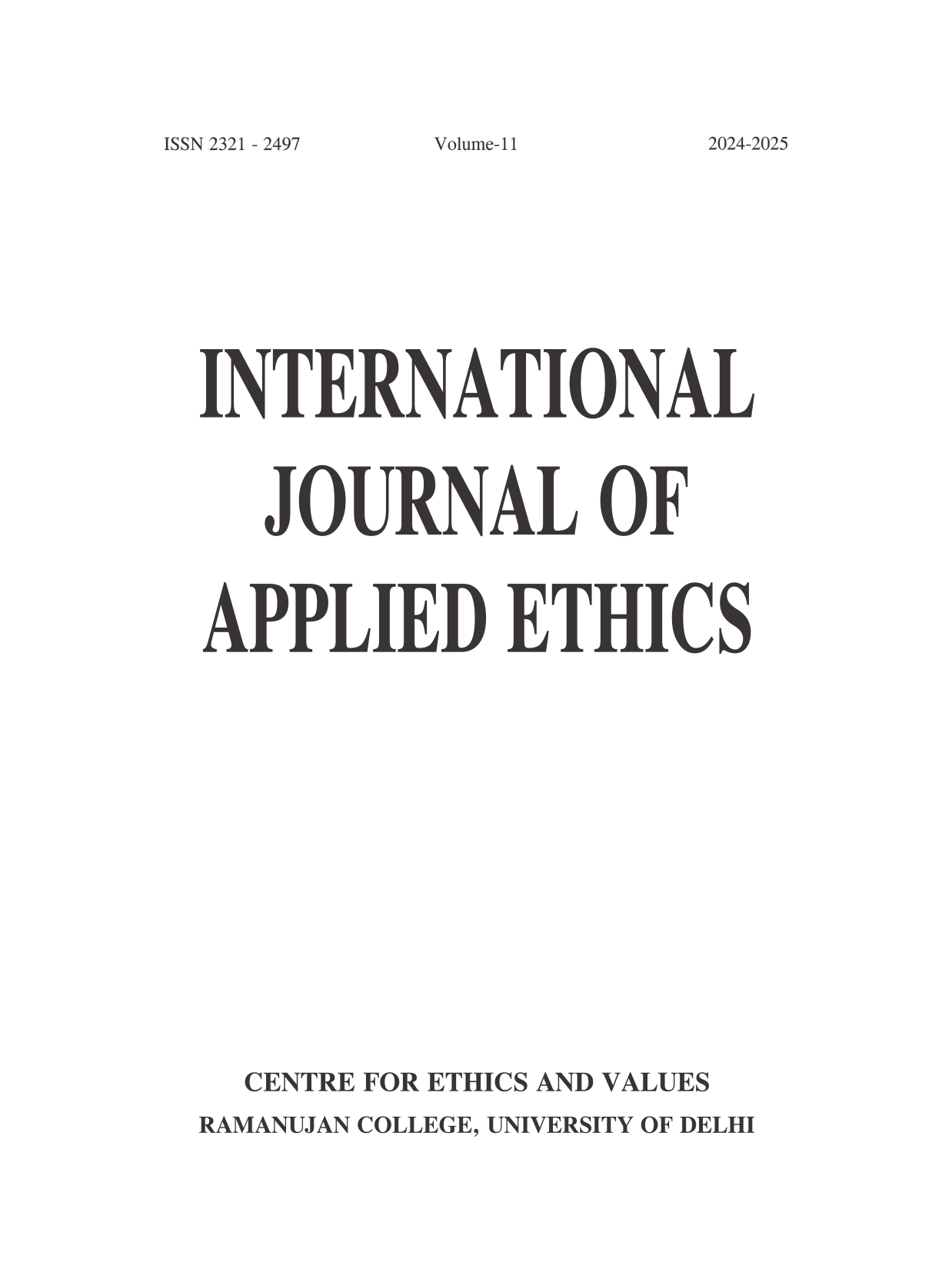AVedic Vedic Ethics for the World Facing Ecological Challenges
Main Article Content
Abstract
The modern Western ethical discourse has been mainly anthropocentric, individual-centricand rights-centric. In contrast, most of the tra ditional Indian ethical discourses, for example,India, have been non-anthropocentric, community-centric and obligation-centric. These two contrasting ethical discourses represent alternative ideologies relating to the relative primacyof rights and obligations. The discourses about the rights of individuals will lose theirmeaning if these discussions are not supported by obligation-centric discourses, focusing onhuman f initude and obligation towards future generations and contemporary living beings, including plants, forests, rivers, mountains and oceans. Thus, we have to recognise theurgency of making decisions at the global level to work together to save the planet Earthfrom disasters. This paper is an attempt to work out the ways in which the Vedic Ethicalideals can be used to make the world a less dangerous and less insecure place for humanity to live. In doing so, the paper will focus on the need of revisiting traditionalIndian ethical discourse for facing and meeting the increasing complexity of ecological challenges for thevery survival of various forms of life on our planet earth and attempt to give a solution for it from Vedic ethical perspectives expounded in Vedas such as Dharma, four Purusharthas,Vasudhaiva Kutumbhakam, Rita, Tri-Rin etc., essential for a harmonious world..

